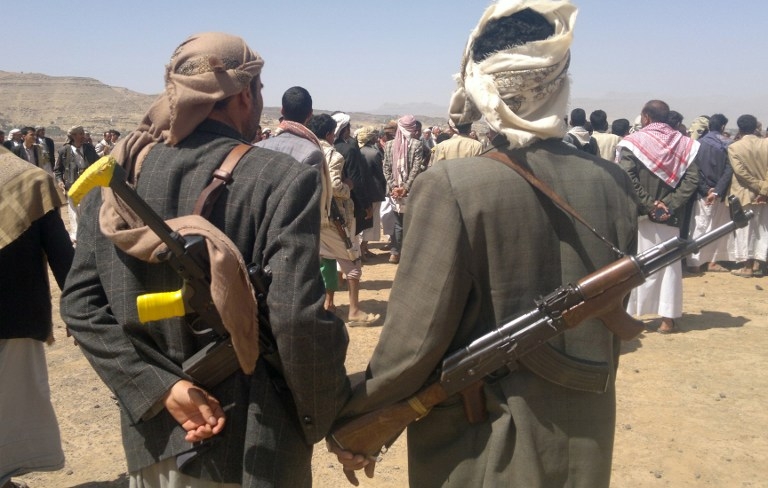Conflicting reports in Yemen about a new peace deal

Yemen's government and Shiite Muslim Houthi rebels signed an agreement on Thursday aimed at ending a crisis that has seen weeks of often deadly protests in the capital Sana'a, a member of the government's negotiating team said.
The negotiator told Reuters the agreement was signed by Sana’a governor, Abdelqader Helal, and Houthi representative Hussein al-Ozzi, who is in charge of political affairs.
Yemen's president has offered to appoint a new prime minister within 48 hours under the deal, with Shiite rebels promising to stop demonstrations, sources close to the presidency said Thursday.
"An accord was reached... late on Wednesday" to end the country's latest political impasse, by which "a new prime minister will be named within 48 hours" and fuel prices will be further cut, a presidency source told AFP.
Another government official said it was an "understanding over an agreement that will be finalised by [UN envoy Jamal] Benomar," who arrived in the capital Sanaa early on Thursday.
Gulf Cooperation Council envoy Saleh al-Qunayeer has also arrived in the country "to back efforts aimed at easing tensions," a GCC statement said.
Houthi opposition leaders, however, have denied the deal insisting that talks were ongoing, Lebanon's Hezbollah affiliated Al-Manar station reported.
If agreed, the deal may end the turmoil which has seen Houthi protesters block the main road to the capital's airport. They have also staged sit-ins outside various ministries for weeks in their attempts to oust the government, which they accuse of widespread corruption, and blame for slashing fuel subsidies.
Widespread sectarian-inspired clashes have also rocked the east and north of the country.
On Wednesday, 31 people were killed when fresh violence broke out between Shiite Houthi militants and army troops in Yemen's eastern Maarib province, a local official said
"Fierce clashes erupted Wednesday evening and continued through the night," the official told Anadolu Agency.
According to the official, 11 army troops and pro-army tribesmen and 20 Houthi militants were killed.
Four leading Houthi figures were also reportedly killed on Wednesday in fighting in al-Ghayl, in the northeastern province of al-Jawf, tribal and Houthi sources said.
Abu Malek al-Fishi a close ally to the rebel leader Abdulmalik al-Huthi is believed to be among the dead.
While there have been previous peace talks between the rebels and government, a lasting deal had repeatedly failed to materialise.
Earlier this month, President Abdrabuh Mansur Hadi promised to name a new prime minister in a proposed initiative but this was rejected by the Huthi rebels.
The rebels, known as Houthis or Ansarullah, instead demanded that Hadi consult them before naming a new prime minister. It was unclear if this has been agreed in the overnight accord, however, under the latest draft deal, the rebels are to "dismantle their protest camps and pull their armed men" from Sanaa and its surroundings, one of the presidency sources added.
Shiite Huthi activists launched their protest campaign in late July after the government announced a hike in fuel prices and then set up camps in the capital on 18 August.
Under the latest agreement, the increase will be cut in half, after a 30 percent decrease took effect last week.
A Houthi spokesman told AFP that "there are proposals to resolve the crisis that are still being considered" amid a "positive" atmosphere. But there are "no announcements on results" of the talks yet, he said.
Prior to Wednesday's deal, the International Crisis Group warned that "Yemen's troubled transition is at a crossroads more dangerous than any since 2011."
Stay informed with MEE's newsletters
Sign up to get the latest alerts, insights and analysis, starting with Turkey Unpacked
Middle East Eye delivers independent and unrivalled coverage and analysis of the Middle East, North Africa and beyond. To learn more about republishing this content and the associated fees, please fill out this form. More about MEE can be found here.




